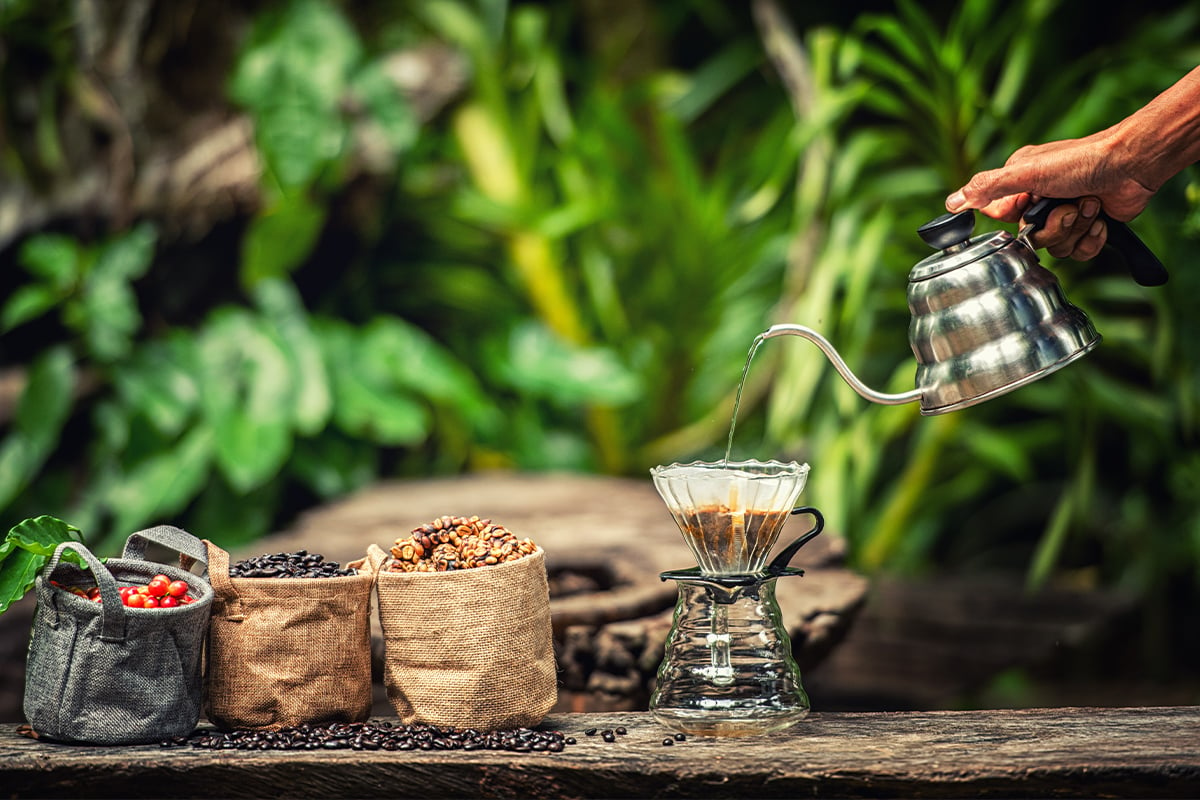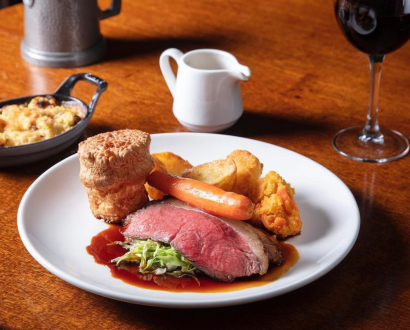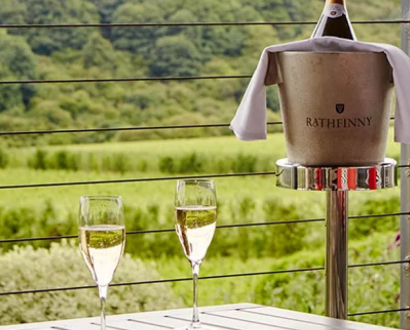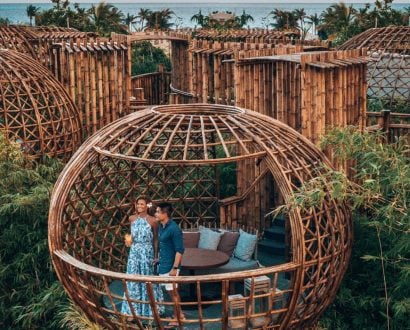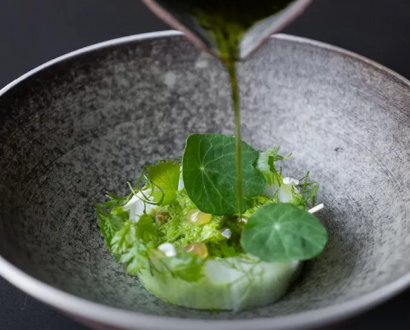Every seasoned chef knows that working with quality seasonal ingredients is critical to the creation of any dish and coffee is certainly no different. However, unlike the experience of purchasing a delicately wrapped gourmet cheese or popping open an exclusive bottle of wine, the art of brewing a sensational cup of coffee involves a series of steps.
“With coffee, it needs to come from the farm in beautifully produced condition, it needs to be roasted beautifully, it needs to be put into a bag and aged, and then you’ve got the barista who needs to grind it,” explains Matthew Lewin, Barista Champion and Coffee Consultant with more than 10 years experience in the speciality coffee industry under his belt.
For Lewin the secret to an incredible brew all depends on the business you decide to place your trust in. “Make sure they care about it, make sure it’s a fresh crop, make sure it’s delicious and make friends with the barista so they can help you guide that,” he suggests.
Likening a grinder to a chef’s knife, the coffee expert reveals that, “You don’t need the best espresso machine, you don’t need the best associated tools, but you need an amazing grinder.” Beyond that, Lewin points out that quantities, duration and temperature are the determinants of success.
“Often that 95 point coffee will have just the most incredible clarity, sweetness, texture, flavour, florality.” – Matthew Lewin
While the market today is inundated with specialty coffee, those with the most refined palates can taste the difference between a coffee that has scored 90 points compared with 85 points.
“Often that 95 point coffee will have just the most incredible clarity, sweetness, texture, flavour, florality,” he says. “It’ll just have the volume turned up on everything.”
Like many things in life, Google can be a good point of reference when exploring the world of high end coffee, but it’s also worth speaking with a local barista to help guide you.
Perhaps the biggest threat to the industry are the impacts of climate change and the COVID-19 pandemic, which have seen prices climb up to 40 per cent.
“Brazil produces the most coffee in the world,” Lewin says. “They’ve had frosts and droughts and all sorts of climate impacts, which has decreased production.”
Those who are able to turn a blind eye to the fact that some exclusive coffees have been naturally processed by animals, will discover that luxury coffee isn’t just a joy for the senses – it supports remote communities and improves industry standards.
Kopi Luwak, US$1,300 per kilogram
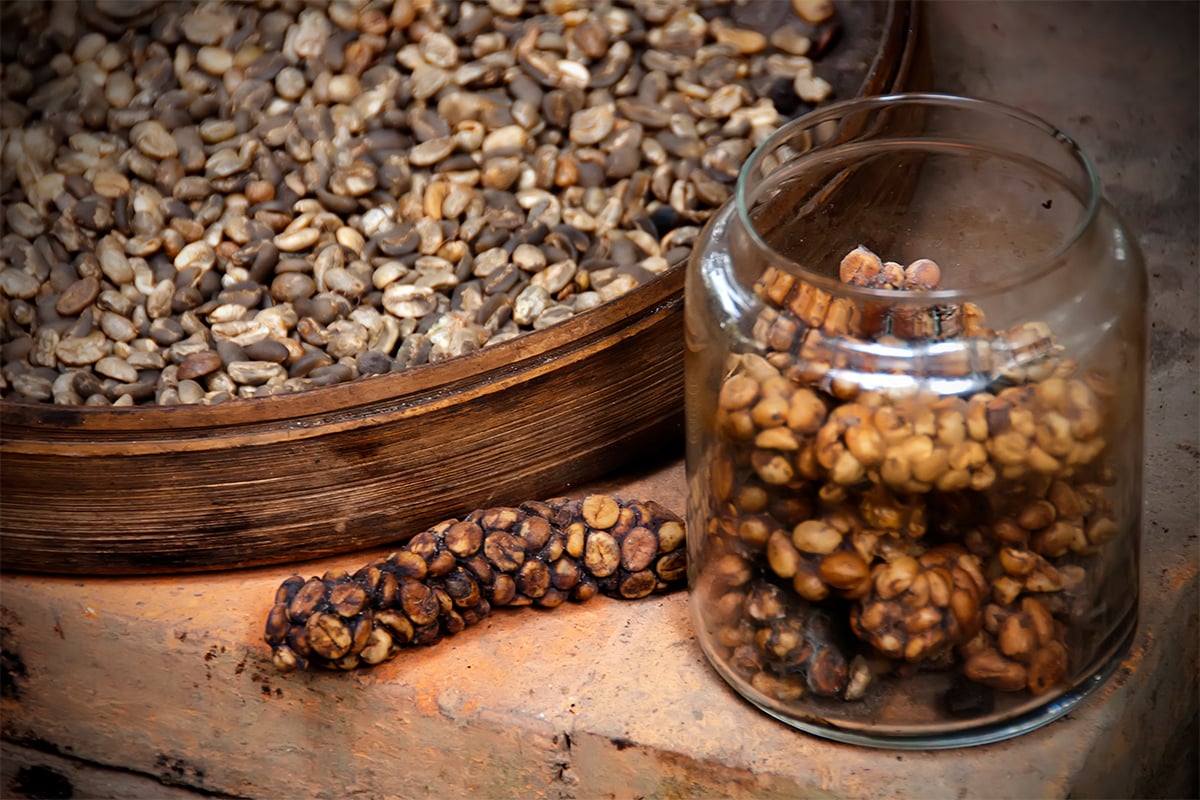
If you’re yet to sample this coffee, something to be aware of is that wild-sourced and farmed Kopi Luwak have different price tags attached as well as ethical implications. To maximise profit, farmed Kopi Luwak entails that civets – the animals behind the brew – are force-fed the coffee cherries in cages.
While coffee connoisseurs have mixed opinions regarding the taste, it is believed that the enzymatic process the beans undergo as they pass through the digestive tract of the civet contributes to its smooth flavour and complex aroma. This tropical cat additionally has a knack for choosing only the best cherries to munch on, which entails a better quality brew. Kopi Luwak is mainly produced in Indonesia on the islands of Java, Bali and Sumatra.
Black Ivory, US$2,500 per kilogram
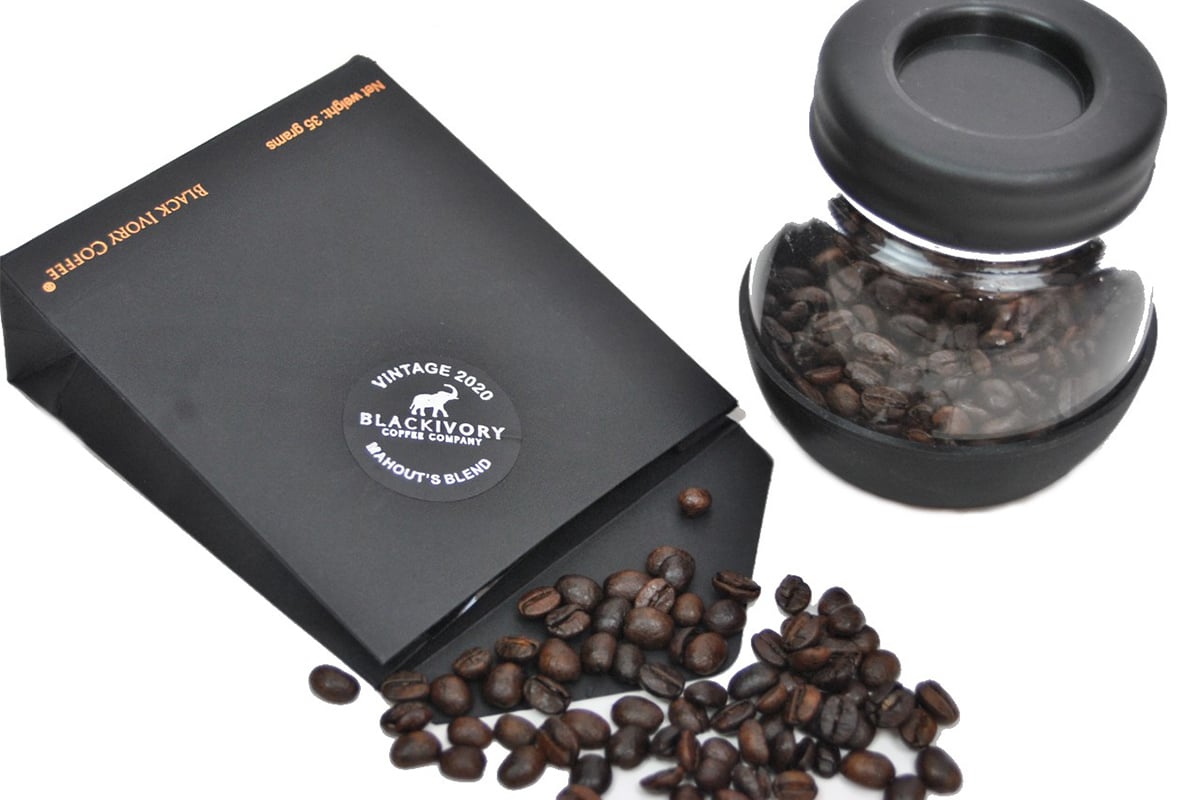
Produced in a remote province in northern Thailand, Black Ivory Coffee involves minimal machinery, relying instead on the natural digestion of elephants.
Only the best high-altitude Arabica cherries are selected and most are unrecoverable during the process. Around 33 kilograms of raw cherries results in one kilogram of the finished product, which are tended to by elephant care-givers and paid high school students once the cherries have been eaten and digested by the elephants. Black Ivory’s supply comes down to two factors: their appetite and the availability of coffee cherries.
Sold primarily to five star hotels and Michelin restaurants, sipping on a cup of this rare brew is a chance to support the well-being of rural communities while enjoying notes of chocolate and spices without a hint of bitterness. However, the flavour is ultimately determined by the digestive enzymes of the elephants.
Saint Helena, US$494 per kilogram
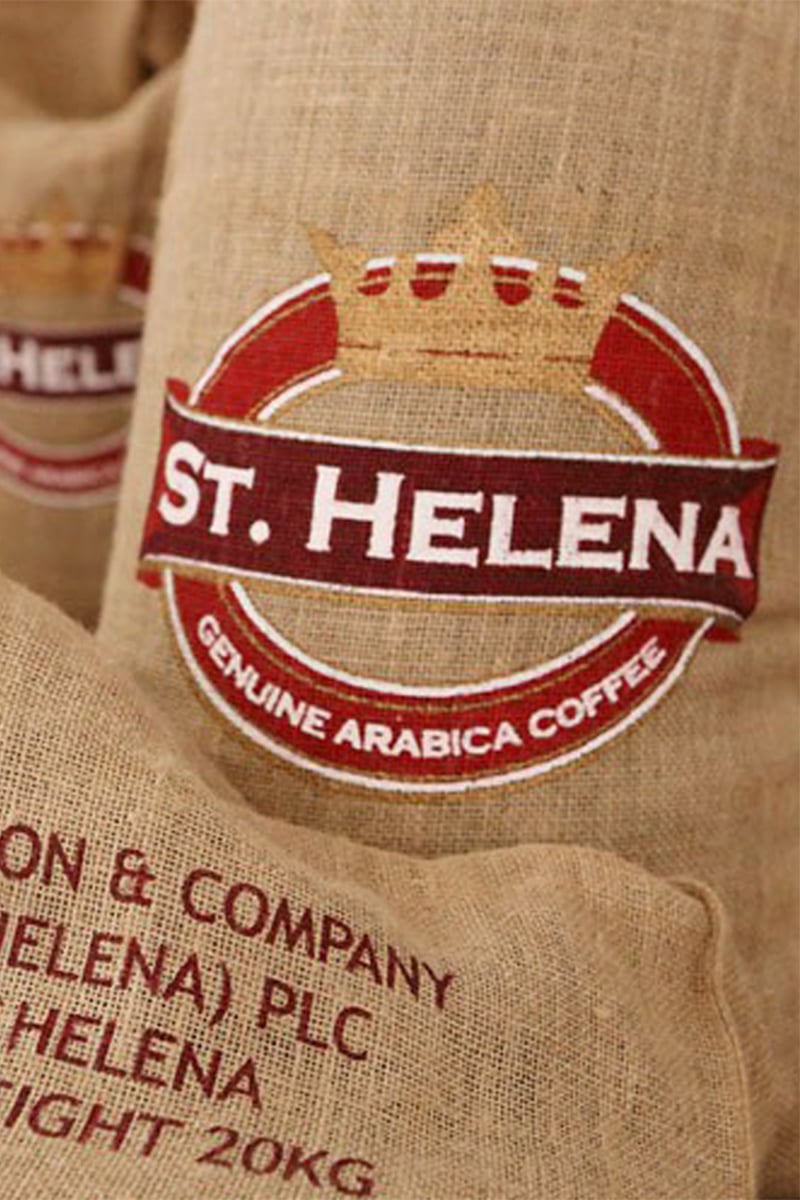
The remote island of Saint Helena, in the South Atlantic Ocean, is one of the purest environments on earth and is where Napoleon was exiled. It is in this location that Green Tipped Bourbon Arabica is harvested, processed and roasted to bring out its distinct qualities that is celebrated by coffee aficionados. Wet processed using local spring water, Saint Helena coffee has notes of black cherry and chocolate that hints at its Yemeni origins. In 2016 Starbucks introduced this highly coveted coffee, which retailed for US$80 for 250 grams.
“It is a delicate cup with subtle floral aromas leading to soft citrus fruit and caramel notes,” Starbucks Coffee Quality Specialist Leslie Wolford explains.
Hacienda La Esmeralda, US$440 per kilogram
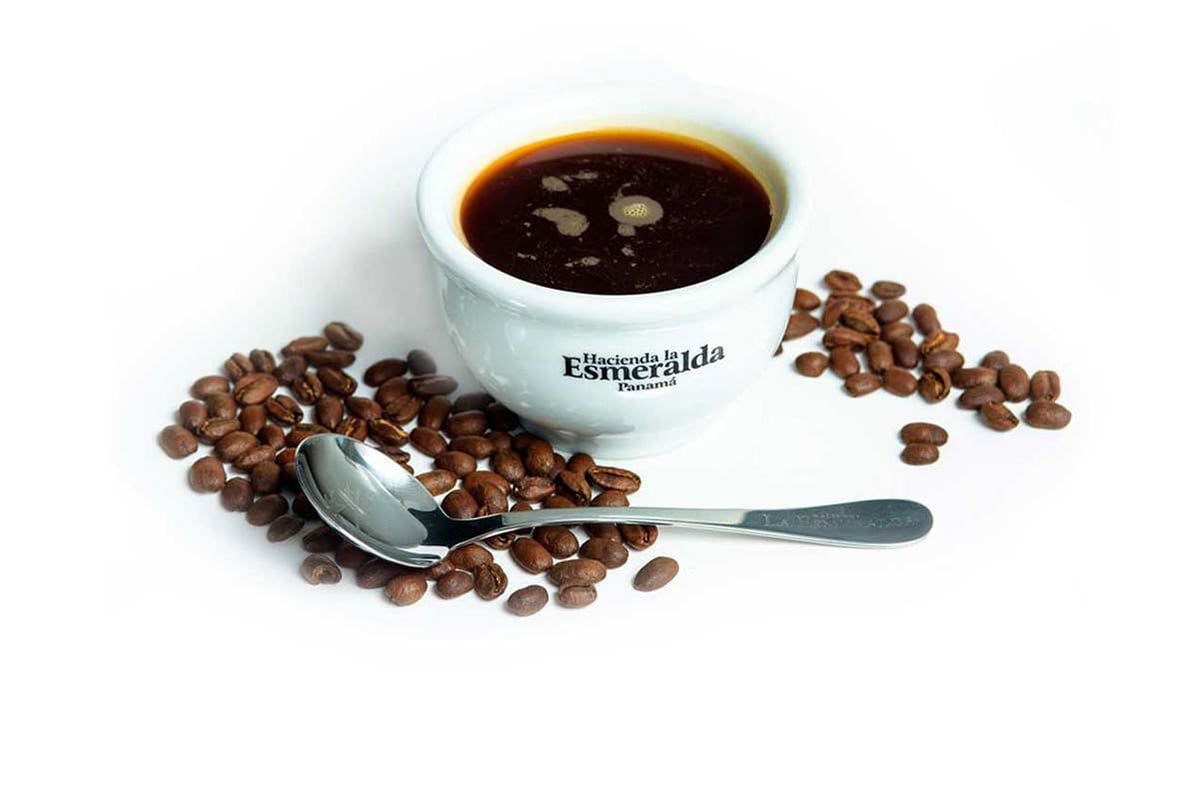
Selling for US$440 per kilogram at several auctions last year, Hacienda La Esmeralda is a family-owned business that produces specialty award-winning coffee in the south-west highlands of Panama. Since 2007, the Petersons have been selling high-quality coffee at record prices through annual private online auctions.
When cuppers first sampled the company’s high-altitude Geisha coffee it was clear that the Petersons had embarked on the right path that led them to winning the 2004 Best of Panama competition and establishing themselves as a world leader in coffee production, winning that award and many others more times since .
Finca El Injerto, US$1,100 per kilogram
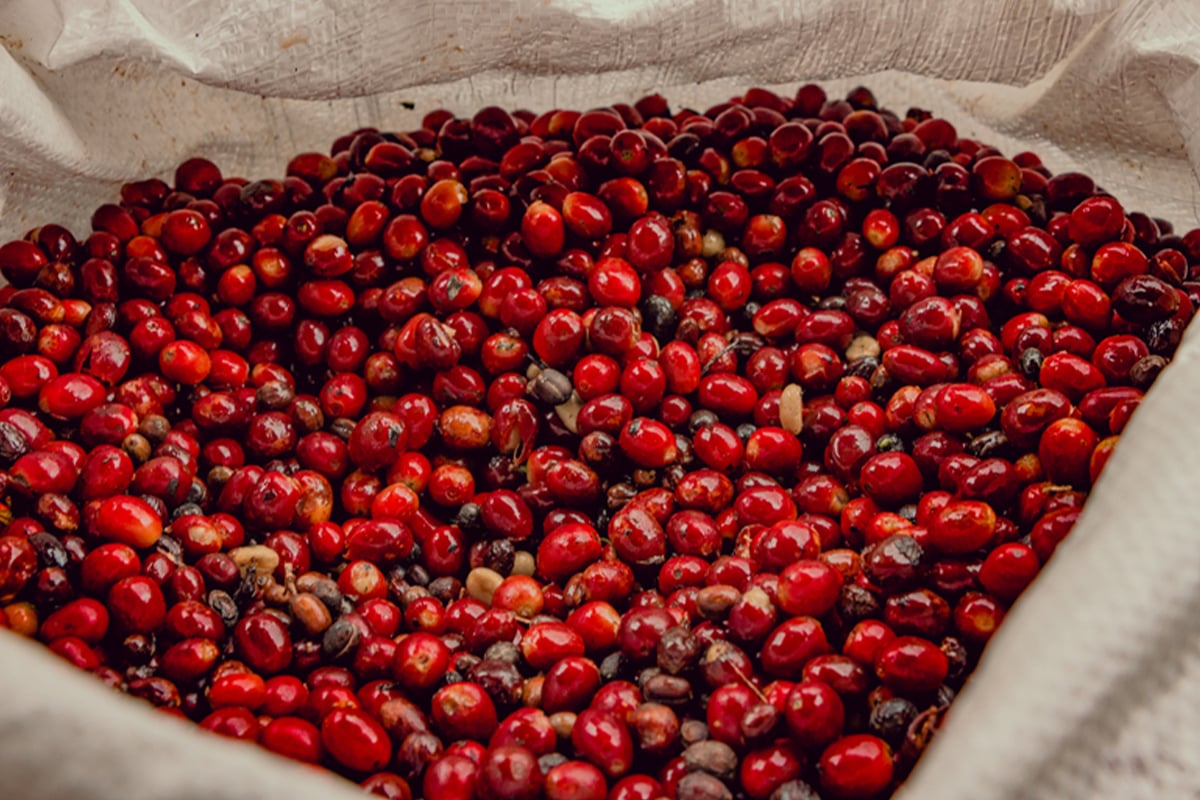
As the first coffee farm in Guatemala to be certified carbon neutral alongside Rainforest Alliance Certification, El Injerto (named after a native fruit) is managed by the Aguirre family, who are dedicated to beneficial agricultural practices and social responsibility.
With its mineral rich non-volcanic soil and high-altitude setting, coffees that hail from El Injerto clearly express the terroir and should not be mistaken for roasters that label their coffees with ‘Finca El Injerto’, but which have not been grown in this region.
Molokai, US$97 per kilogram
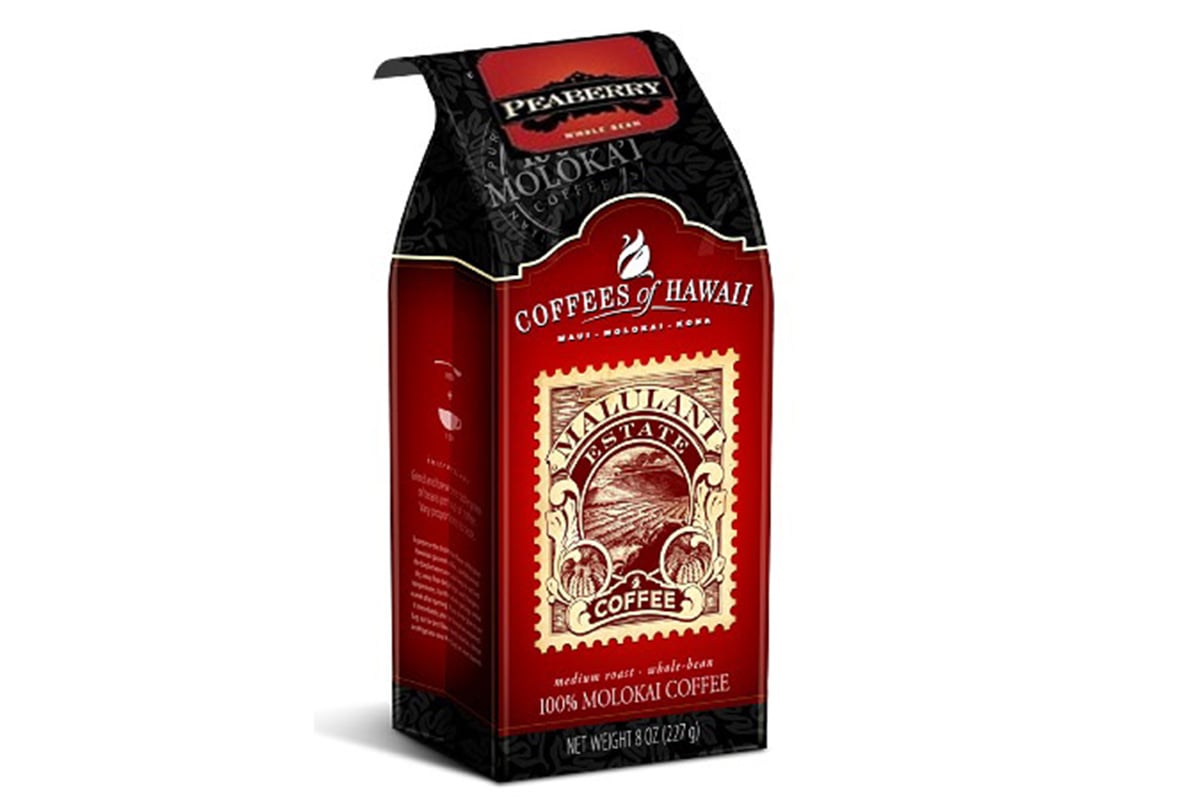
Genuine Molokai coffee is primarily grown on the island of Molokai in Maui County, Hawaii. Coffees of Hawaii is the company responsible for meeting global demand for Molokai, which is one explanation for its exuberant price tag. When labelled “Molokai Prime”, coffee drinkers have a guarantee for high-quality. The Red Catuai is the highly-prized Arabica variety that thrives in the red soils found in this location and which results in rich tasting notes.
Fazenda Santa Ines, US$46 per kilogram
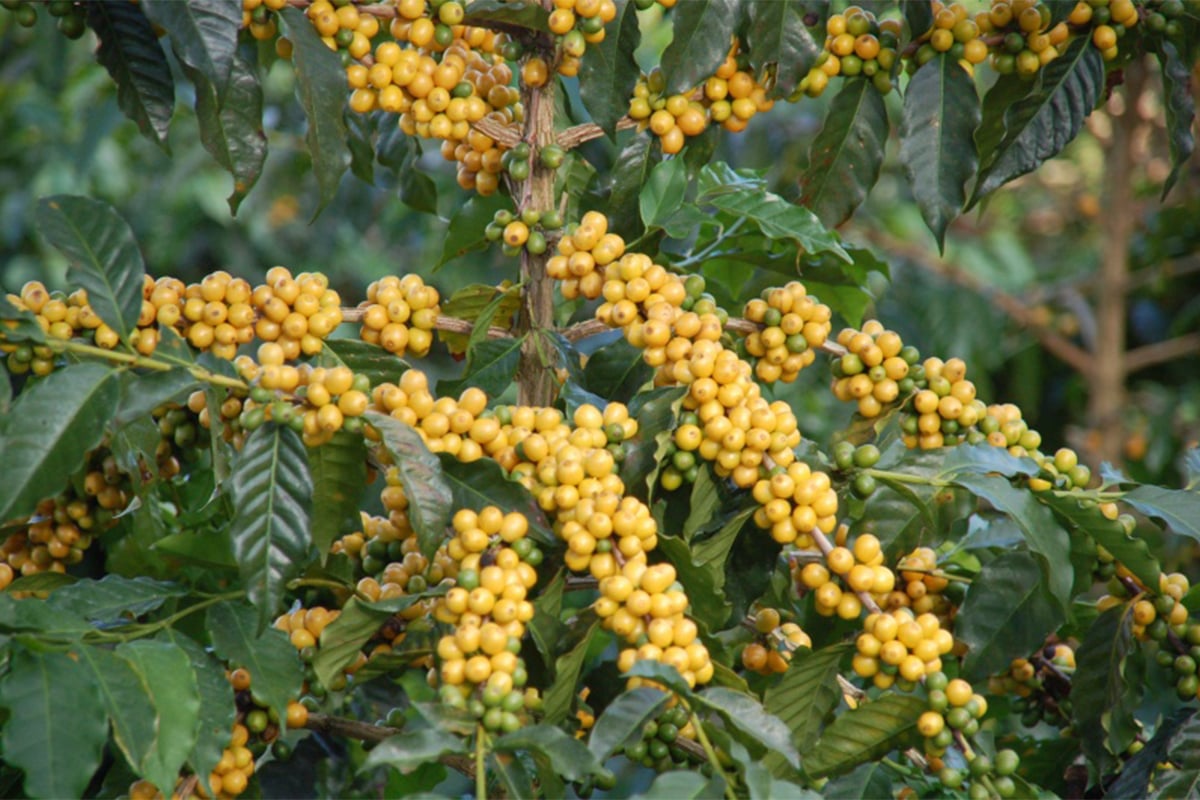
Grown at the foot of the Mantiqueira mountains of Brazil in South Minas, Fazenda Santa Ines is a sweet and bright coffee with citrus notes that is low in acidity.
Since 1979 the Pereira family have been in the business of coffee growing and setting world records with the help of a dedicated workforce of 135 families. In 2005 Fazenda Santa Ines achieved a score of 95.85 in the Cup of Excellence Brazil thanks to the favourable conditions in South Minas and meticulous processing to ensure quality.
Ospina, US$790 per 250 grams
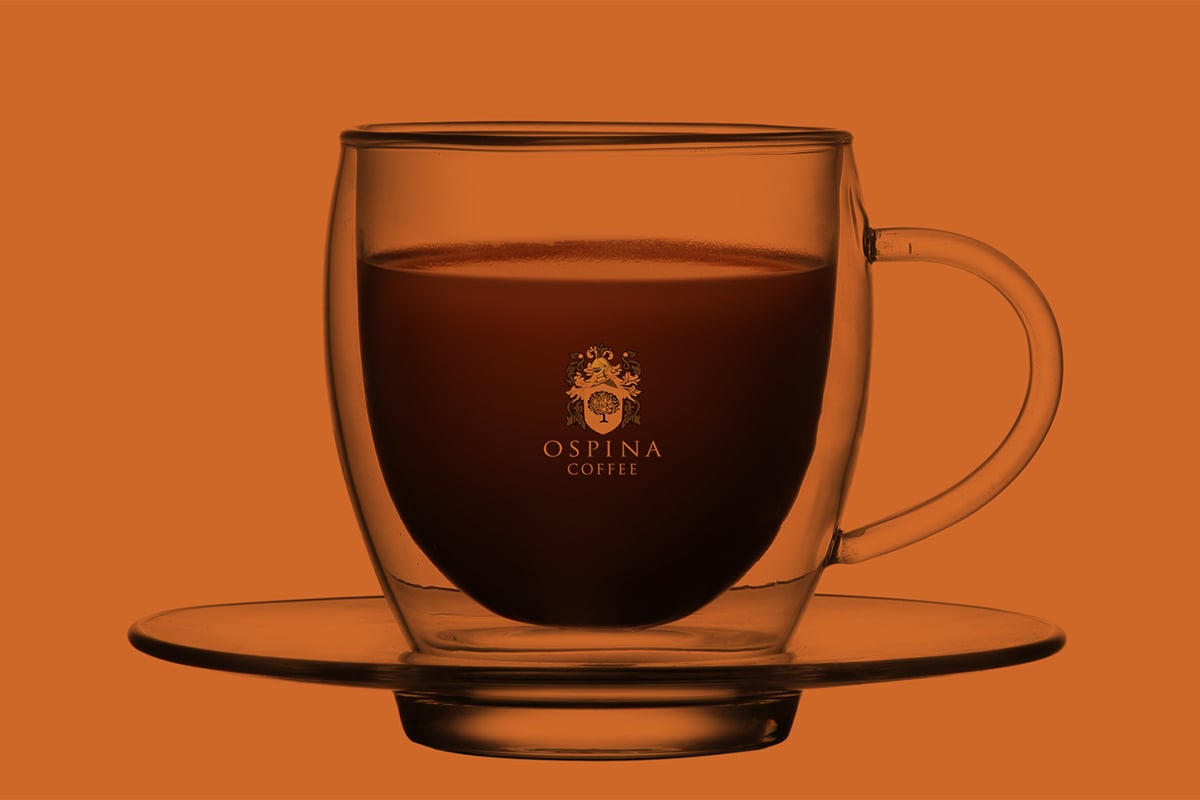
Cultivated over five generations, Ospina coffee is produced from Arabica Typica beans, which are grown in the tropical forests of the Andes in shady conditions. These mountain slopes are rich in volcanic ash, which fertilises the soil and enhances the warm, nutty flavour of this Colombian coffee. The way to enjoy it is to grind the whole beans and brew it in pure water at the right temperature (Between 91 and 96 degrees celsius).
Read next: Exciting new restaurant openings in the US

